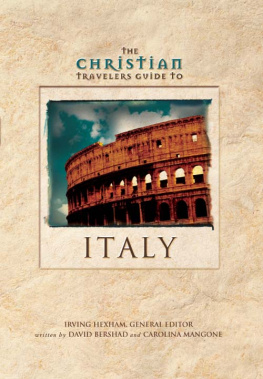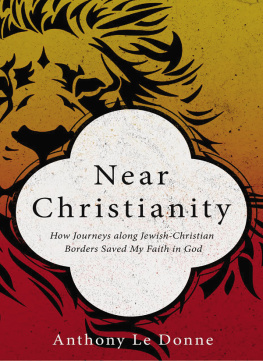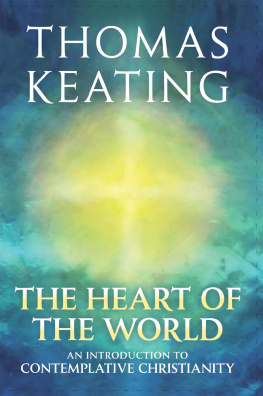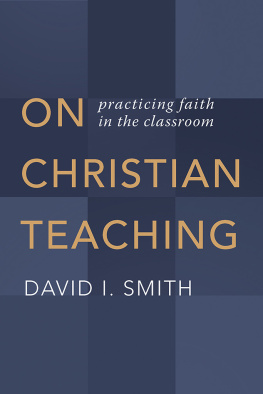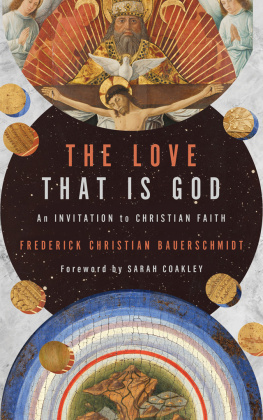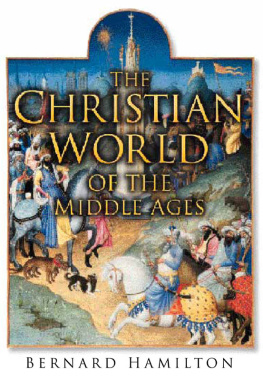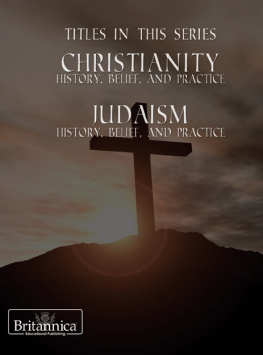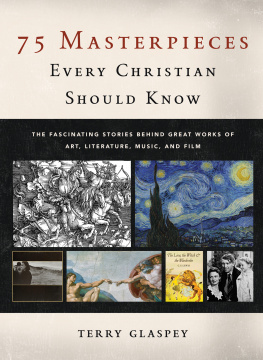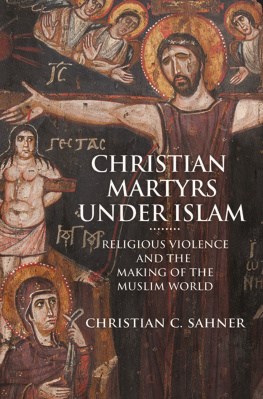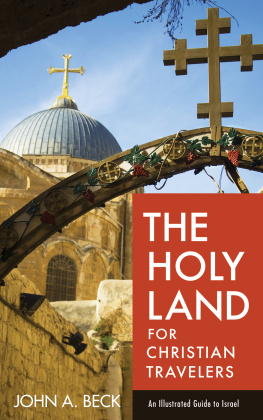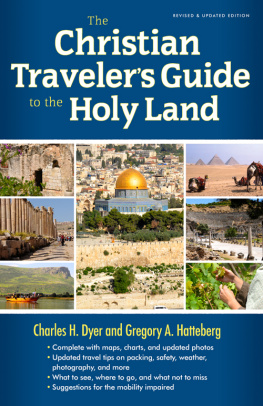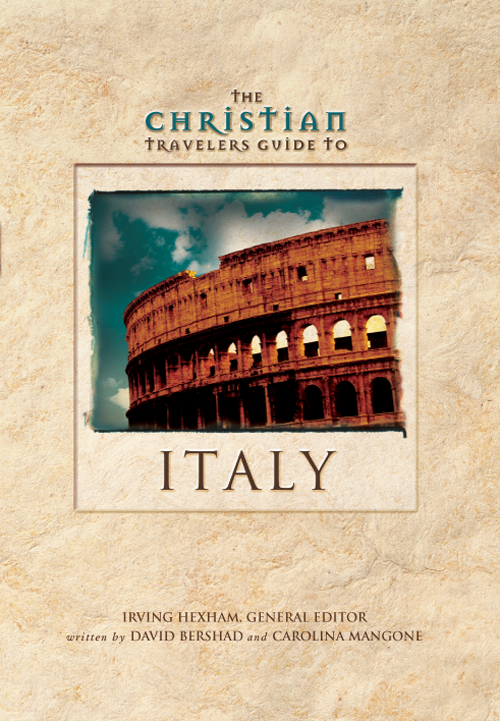Remember how the LORD your God led you.
Deuteronomy 8:2
The task of history is to establish the truth of this world.
Karl Marx (1955:42)
Memories of paintings, sculptures, museums, churches last a lifetime.
Edith SchaefferThe Tapestry
O ur series of books is designed to awaken an awareness of Europes Christian heritage among evangelical Christians, although we hope all Christians and others who are simply interested in Christianity will also find them helpful. Anyone visiting a large bookstore will quickly discover that it is possible to buy travel guides with titles like Pagan Europe, Occult France, Magical Britain, and The Travelers Guide to Jewish Germany, alongside more traditional travel guides which attempt to take in everything worth seeing. Yet even books like the Frommers, Fodors, and Rough guides, although they mention Christian places and events, tend to underplay the Christian contribution to Western Civilization through neglect or a negative tone. Therefore, our guides have been written to correct what we see as a major oversight in existing works.
Our series is concerned with people and events of historical significance through their association with particular places. Thus we attempt to locate the development of ideas which have changed the world through their relationship with people and places. Consequently, we suggest visits to particular places, because by visiting them you can gain a better understanding of the times when important events took place.
The central theme of these books is the contribution of Christianity to Europe and the world. But not everyone discussed in these books was Christian. Indeed, many of the people we mention were strongly anti-Christian. Such people are included because it is impossible to understand our own times without appreciating the destructive forces that have attempted to replace Christianity by secularism and neopagan religions.
HISTORY AND MEMORY
Christianity is rooted in history. The New Testament begins with a genealogical table that most modern readers find almost incomprehensible (Matthew 1:117). The purpose of this genealogy is to locate the birth of Jesus in space and time according to the standards of Jewish history. The appeal to the first eyewitnesses, in the prologue to the gospel of Luke, is also clearly intended to engage the skepticism of Greco-Roman readers by providing specific historical data against which ancient readers could weigh the writers claims (Luke 3:12). The Gospels contain many references to historical data and specific geographic locations. So important is historical truth that its denial becomes a mark of heresy for New Testament authors (1 Corinthians 15:18; 1 John 4:13).
Clearly, the Bible is steeped in history and the remembrance of history. Both the Old and New Testaments constantly reminded their readers about particular historical events (cf. Deuteronomy 4:914; Acts 7). Thus, parents are commanded to teach their children the significance of history (Deuteronomy 6:425) both by retelling the story and through commemorations which enact the central acts of salvation (Exodus 13:316; 1 Corinthians 11:2326). Further, an appeal is frequently made to visible memorials that remind people of Gods wonderful deeds (Acts 2:2936). We also find both Jews and early Christians visiting historic sites as acts of devotion (Luke 2:2141; Acts 21:1727).
The importance of history, and the way in which we remember past events, is recognized by many influential opponents of Christianity. Karl Marx, for example, argued that the ability to control history, or rather the interpretation of history, was an essential step in the abolition of religion. Almost a century later, Adolf Hitler made a similar appeal to history and historical necessity. Both Marx and Hitler, following in the footsteps of Enlightenment skeptics like Tom Paine, sought to establish the truth of their revolutions by denying the validity of Christian history.
Our books are, we hope, a small contribution to the reestablishment of a sense of history and cultural pride among Christians. Following the biblical model, we believe that visiting places and seeing where great events took place help people remember and understand the present as well as the past (Joshua 4:17). It is our hope that these books will bring history alive, and with a sense of history a growing awareness of the realities of faith in our world. As Francis Schaeffer loved to point out, there is a flow to history because Christian faith is rooted in space and time. To forget our history is the first step to the abandonment of our faith, the triumph of secularism, the ascendancy of New Age spirituality, and the rebirth of paganism.
SEEKING SPIRITUAL ROOTS
The great truth of the New Testament is that Christians are children of God by adoption. Today many people have forgotten that the New Testament preaches the revolutionary doctrine that our relationship to God is not through physical descent, but by adoption (Romans 8:23; Galatians 4:5; Ephesians 1:5).
The implications of this doctrine are profound. All Christians are united by bonds of faith and love, not physical relationships (Ephesians 2). Thus, Christianity is not a tribal religion rooted in local communities bound by kinship bonds. Rather, it is a world faith that unites all believers.
Repeatedly, both the Old and New Testaments point to examples of faith which we are encouraged to follow and remember (Joshua 4; Luke 11:2932; Acts 7; Hebrews 12). Remembering acts of courage and obedience to God strengthens our own faith. This fact was long recognized by the leaders of the church. Throughout history, Christians have told and retold stories of courage and faith. Yet today these stories are all but forgotten. Lives of the saints which were once standard texts for every educated person and pious believer are now rarely read, and books like Foxes Book of Martyrs (1554) are left unopened.
Today, Christians are quickly forgetting their rich spiritual heritage as Christian biographies are replaced in popular culture by secular gossip. Popular magazines, radio, and television are full of lives. But they are the lives of pop singers, film stars, television personalities, and secular politicians. Instead of teaching spiritual lessons, they repeat trivia and revel in scandal. Something has been lost. And it is this something that can be recaptured by Christians who begin to search for their spiritual roots.
Visiting Italy to learn about great acts of faith can be a rewarding experience, and it is something all Christians, regardless of race or nationality, can find profitable. This spiritual quest helps us see our own lives in perspective and understand our times against a much greater backdrop than tonights television news. That is the quest this book encourages you to begin.
P ART 1
ITALIAN HISTORY
C hristianity spread to Italy following the death and resurrection of Jesus as a sect within Judaism. Large Jewish communities in Italy provided a fertile base for Christian preachers who soon began to make converts among native Italians. Other converts visiting Rome as traders or soldiers assisted in the spread of this new religion, which soon provoked bitter opposition. Persecution quickly followed, and according to tradition Rome was the site of St. Peters death and the imprisonment of St. Paul, who many believe eventually died in Spain.

